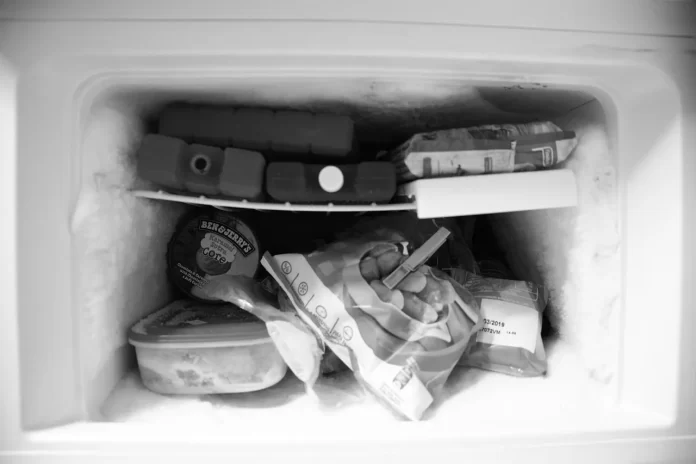
Your refrigerator’s freezer is a great tool for home cooking lovers, as you can store leftover soups, stews, breads, and cut fruits and veggies for future use. Modern freezers can keep many of the foods and ingredients we love fresh for a long time, and things like frozen fruit, unsalted butter, whole poultry, and steaks can stay good for up to a year, the Independent reports.
Can freezer burn give you diarrhea? But are you aware of freezer burns? How can it make you sick? The answer is not so straightforward.
While freezer burn itself is unlikely to cause diarrhea, consuming improperly stored or expired frozen food can increase the risk of foodborne illness, which can lead to a range of symptoms including diarrhea, nausea, vomiting, and abdominal pain.
Can freezer burn give you diarrhea

Freezer burn occurs when frozen food is exposed to air, causing dehydration and changes in texture and taste. While freezer burn may not be harmful in itself, it can create an environment that is more hospitable to bacteria and other pathogens, which can lead to food spoilage and potential illness.
When food is stored in the freezer for an extended period of time, ice crystals can form on its surface. As the ice crystals grow, they can cause the food to become dehydrated, which can compromise its texture and flavor. But more importantly, the dehydration can create small openings in the food’s surface, allowing bacteria and other pathogens to enter and start to grow.
If the food is consumed in this state, it can lead to foodborne illness, which can cause symptoms such as diarrhea, nausea, vomiting, and abdominal pain. The risk of foodborne illness is increased if the frozen food is not properly stored or is past its expiration date.
To reduce the risk of foodborne illness, it’s important to properly store and handle frozen foods, and to discard any items that are significantly freezer-burned or past their expiration date.
Also read about: Does Cold Formula Upset Baby’s Stomach
Safe storage methods include using airtight containers or freezer bags, labeling and dating frozen items, and maintaining a consistent temperature in the freezer. By following these best practices, you can help ensure that your frozen food stays safe and free from harmful bacteria.

How can I prevent freezer burn from happening to my frozen food?
Here are some tips for preventing freezer burn and foodborne illness:
- Properly package and seal your frozen food to prevent air exposure.
- Label and date your frozen food to keep track of its age and contents.
- Keep your freezer at a consistent temperature of 0°F (-18°C) or below
- Thaw frozen food safely in the refrigerator, in cold water, or in the microwave.
- Discard any significantly freezer-burned or expired items to avoid the risk of foodborne illness.
By following these simple tips, you can help ensure the safety and quality of your frozen food and avoid any potential health risks.
FAQs
Conclusion
Freezer burn itself is unlikely to cause diarrhea, but consuming improperly stored or expired frozen food can increase the risk of foodborne illness, which can lead to a range of symptoms including diarrhea. Freezer burn occurs when frozen food is exposed to air, causing dehydration and changes in texture and taste. While freezer burn may not be harmful in itself, it can be a sign that the food has been improperly stored or is past its expiration date.

